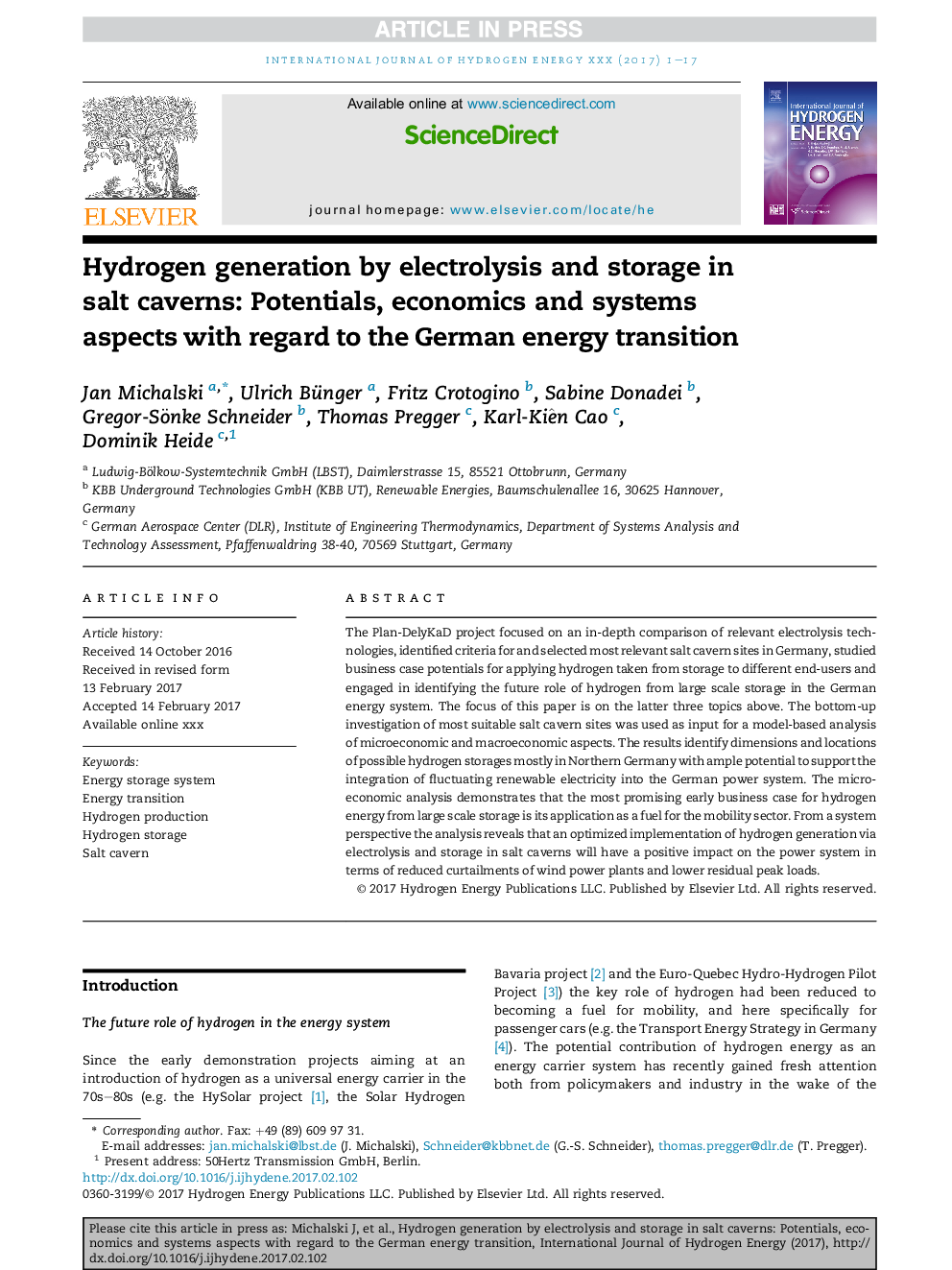| Article ID | Journal | Published Year | Pages | File Type |
|---|---|---|---|---|
| 5147294 | International Journal of Hydrogen Energy | 2017 | 17 Pages |
Abstract
The Plan-DelyKaD project focused on an in-depth comparison of relevant electrolysis technologies, identified criteria for and selected most relevant salt cavern sites in Germany, studied business case potentials for applying hydrogen taken from storage to different end-users and engaged in identifying the future role of hydrogen from large scale storage in the German energy system. The focus of this paper is on the latter three topics above. The bottom-up investigation of most suitable salt cavern sites was used as input for a model-based analysis of microeconomic and macroeconomic aspects. The results identify dimensions and locations of possible hydrogen storages mostly in Northern Germany with ample potential to support the integration of fluctuating renewable electricity into the German power system. The microeconomic analysis demonstrates that the most promising early business case for hydrogen energy from large scale storage is its application as a fuel for the mobility sector. From a system perspective the analysis reveals that an optimized implementation of hydrogen generation via electrolysis and storage in salt caverns will have a positive impact on the power system in terms of reduced curtailments of wind power plants and lower residual peak loads.
Related Topics
Physical Sciences and Engineering
Chemistry
Electrochemistry
Authors
Jan Michalski, Ulrich Bünger, Fritz Crotogino, Sabine Donadei, Gregor-Sönke Schneider, Thomas Pregger, Karl-Kiên Cao, Dominik Heide,
